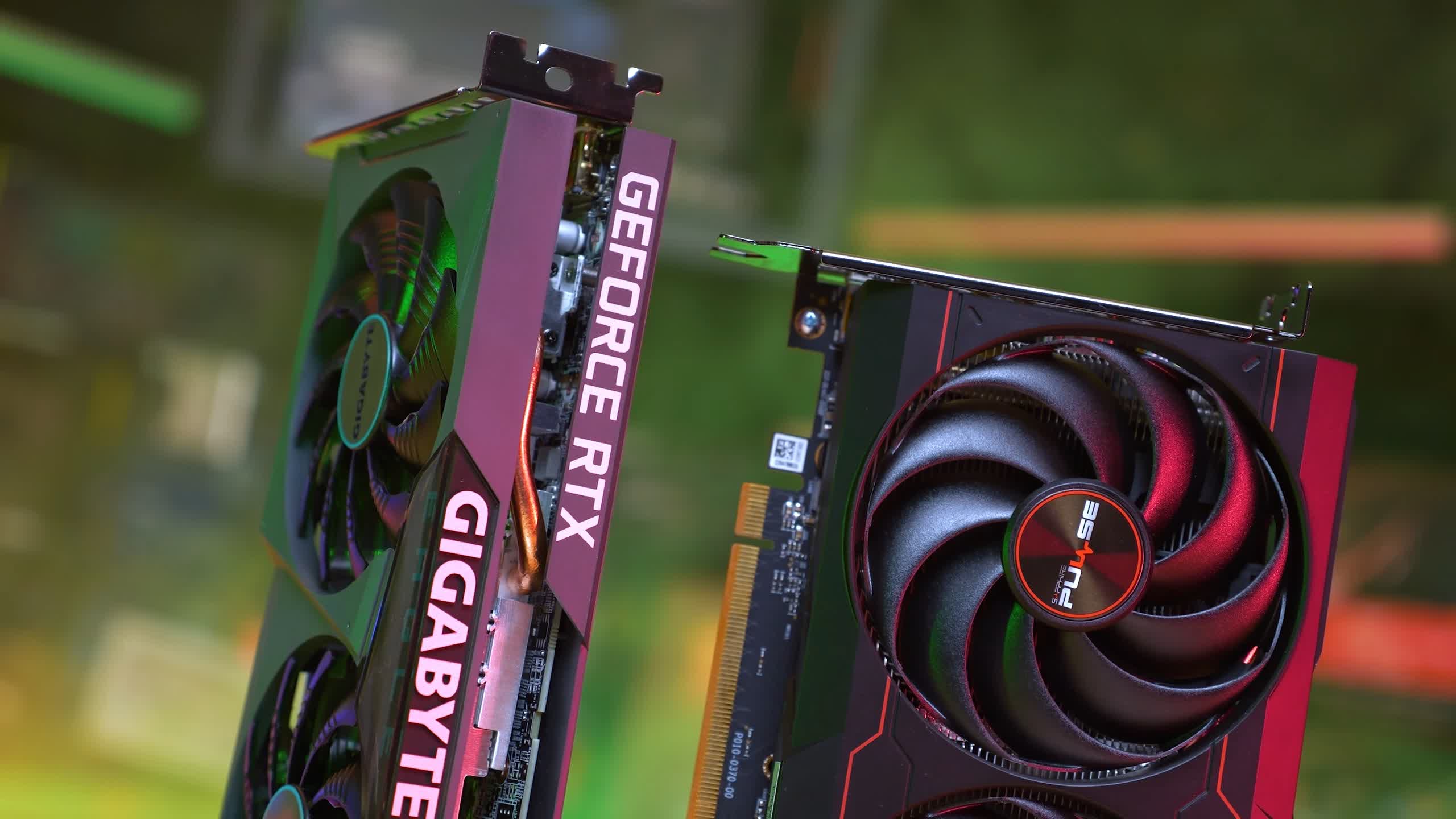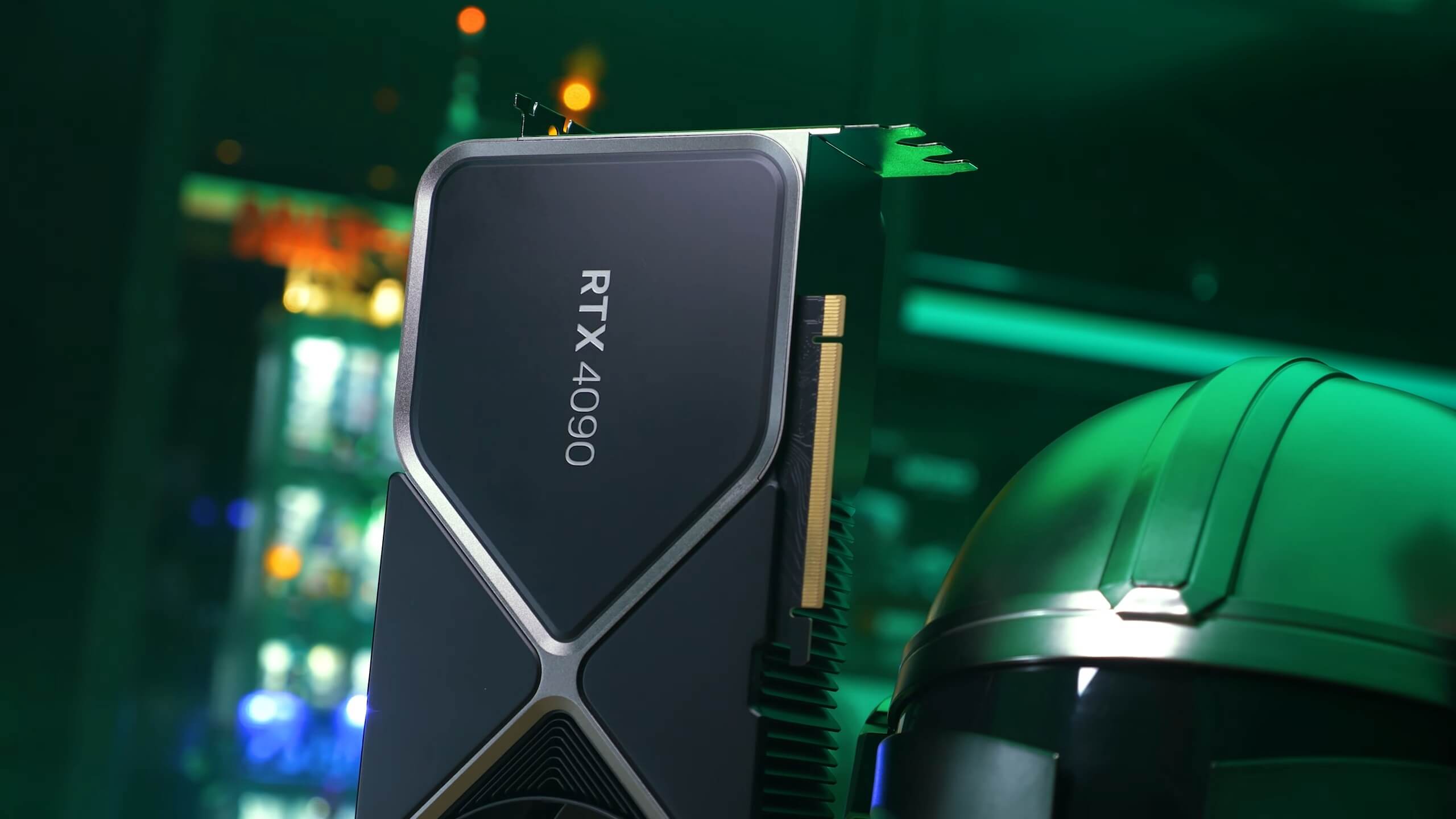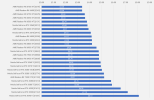Well of course it's going to be better than the cards you had before, that's how tech works. This is why I cringe every time I hear "This is the fastest CPU that Intel has ever made!" because a voice in the back of my head says "D'UHHHH, NO KIDDING, EH?".
The RTX 3060 Ti is an impressive 1080p gaming card that is also quite capable of gaming at 1440p at most games if you turn some settings down. It's one of the few GeForce cards that was a great value if you bought it for MSRP. The fact that you could mine the cost of the card back was an added bonus (depending on what you paid for it).
Well, you definitely didn't go wrong. There's nothing better than free except getting paid to take something!

I guess that nobody had the heart to point out that no version of the RTX 3050 is powerful enough to use RT in any meaningful way. With RT on, it has about the same performance as the RX 6600 but with RT off, the RX 6600 curbstomps it. So many people are too lazy to do their homework beforehand and are often too stupid to even think about it in the first place.
Never underestimate the stupidity of the average human. <- My proudest quote!

This is so true that it's both hilarious and painful to read at the same time.
Just because you got a dead card means that the next one will also be dead.
Here's my history with Radeons:
HD 4870 - So good that I bought a second for Crossfire.
HD 7970 - Also so good that I bought a second for Crossfire.
R9 Fury - Best money I ever spent on a card. Bought a refurb as a second card for $100.
RX 5700 XT - Power delivery problems, had to RMA. Second card had a VRAM error so I had to RMA that one too. Was a pain in the posterior but R9 Fury could still game so I didn't really lose much sleep over it.
RX 6800 XT - Amazing performance and no issues whatsoever.
The secret to success with a Radeon GPU is that you have to use DDU. If, like me, you couldn't be bothered to go into safe mode, you have to run it twice. Also make sure that you're not connected to the internet when you run it both times. I used to unplug my ethernet cable but then slapped myself and just disabled the port in Windows. Do this before initial installation and make sure to choose "nVidia" over "AMD" because it's an nVidia driver package that you're removing. Then do the exact same thing with the AMD selection to clean your system before installing new Radeon drivers. I have a tendency to not do driver updates unless I really need them because, like you, I believe in not fixing what isn't broken.
The problem here is that the MSRPs are fake and a lot of the time, the market price is scalper price. It really is a no-win scenario.
I understand that but you don't go back and edit it either so that outdated opinion becomes permanent. You have to agree that based on reading both of those reviews, those who aren't experts will choose the RTX 3050 over the RX 6600. That's not in anyone's best interest is it? I would say it's quite the contrary. Now, certainly in the past when card prices weren't fluctuating like a star in the process of going nova this wasn't needed. However, because of what has occurred between then and now, those articles need to be revisited. It wouldn't be that hard because 99.9% of the data remains the same. All that would really need to be changed is the score and conclusion. I mean, seriously, one of the most-recommended and best-value cards out there, the RX 6600 XT has a score of 60.
For whatever reason, it's a REALLY bad look.
Sure, but that's not what people will be looking for because they're looking for a review. The way the review is worded also has an impact and Steve made the RX 6600 XT sound TERRIBLE while making the RTX 3050 (which is nothing more than hot garbage) sound like something worth buying. This is about the responsibility of the media, which, for better or for worse, Steve Walton is. If you know something's wrong, it is irresponsible to leave it as it is. I know that this is a rather unique situation but it's a real one.
I used those because I happened to come across them first, EXACTLY how someone who was just trying to decide which one to buy would do. Only people who have watched Hardware Unboxed over time would have any idea how Steve does things. They're just looking for articles and if they're looking at TechSpot, congratulations, we'll have even more people willing to pay anything for nVidia cards because Steve said so and Steve is well-known and respected.
Cherry picking? Ok, I'll just show everything:
nVidia:
RTX 3050 - Score of 80
RTX 3060 - Score of 75
RTX 3070 - No Techspot Score listed
RTX 3070 Ti - Score of 75
RTX 3080 - Score of 90
RTX 3080 12GB - Score of 75
RTX 3080 Ti - Score of 75
RTX 3090 - Score of 80
RTX 3090 Ti - Score of 70
RTX 4070 Ti - Score of 80
RTX 4080 - Score of 80*
RTX 4090 - Score of 90
* - Score was said to be dropped to 70 after members of techspot collectively said "You're joking, right?" but it clearly wasn't.
AVERAGE GEFORCE SCORE: 79.1
AMD:
RX 6400 - Score of 30
RX 6500 XT - Score of 20
RX 6600 - No Techspot score listed
RX 6600 XT - Score of 60
RX 6650 XT - Score of 70
RX 6700 - Not reviewed
RX 6700 XT - Score of 70
RX 6750 XT - Score of 70
RX 6800 - Score of 95
RX 6800 XT - Score of 90
RX 6900 XT - Score of 75
RX 6950 XT - Score of 80
RX 7900 XT - Score of 70
RX 7900 XTX - Score of 80
AVERAGE RADEON SCORE: 67.5
It has been accepted that Radeons were fantastic values at the lower tiers, the tiers in which Techspot gave them the LOWEST scores. Maybe you were better off with me "cherry-picking my data" as you called it because showing EVERYTHING makes Techspot look even more like nVidia shills. Very few (if any) people would say that these scores are correct, even if they thought that nVidia was better in the past 2 gens, they wouldn't agree that they were THAT MUCH better.
I don't care if you deny the bias that has been slapping us in the face since RDNA2 came out because those numbers don't lie.





